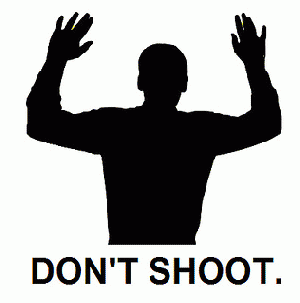Amnesty International (AI) recently released a report on human rights abuses in Ferguson, Missouri, in the wake of the August 9th shooting of black teenager Michael Brown by a white police officer.
The report, titled On the Streets of America: Human Rights Abuses in Ferguson, outlines the findings by AI observers who were in Ferguson from August 14-22 to monitor the post-shooting protests and police response, along with recommendations to local, state and federal authorities regarding both the use of lethal force and the policing of protests.
The report addresses the following issues:
- Use of lethal force
- Racial discrimination and excessive use of police force
- Law enforcement response to protests
- Imposition of restrictions on the rights to protest - curfews, designated protest areas, and other restrictions
- Intimidation of protesters
- Use of tear gas and rubber bullets to disperse protests
- Use of Long Range Acoustic Devices
- Restrictions on the media as well as legal and human rights observers at protests
- Failures of accountability for law enforcement in policing protests
"What Amnesty International witnessed in Missouri on the ground this summer underscored that human rights abuses do not just happen across borders and oceans," said Steven W. Hawkins, executive director of AI USA. "No matter where you live in the world, everyone is entitled to the same basic rights as a human being -- and one of those rights is the freedom to peacefully protest. Standing on W. Florissant Avenue with my colleagues, I saw a police force, armed to the teeth, with military-grade weapons. I saw a crowd that included the elderly and young children fighting the effects of tear gas. There must be accountability and systemic change that follows this excessive force."
"The events in Ferguson sparked a much-needed and long-overdue conversation on race and policing in America," added Hawkins. "That conversation cannot stop. In order to restore justice to Ferguson, and every community afflicted by police brutality, we must both document the injustices committed and fight to prevent them from happening again. There is a path forward, but it requires substantive actions on the local, state, and federal levels."






